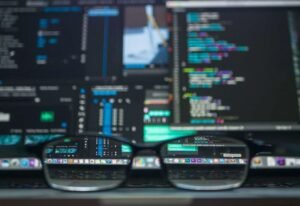Is AI a Threat to Humans?
AI (Artificial Intelligence) has been making significant advancements in recent years, and while many people are excited about the potential benefits it brings, there is also a growing concern about whether AI could pose a threat to the future of humanity. This article explores the various perspectives on the potential risks associated with AI development.
Key Takeaways
- AI presents both opportunities and risks.
- Concerns about AI include loss of jobs, ethical dilemmas, and existential threats.
- Regulation and ethical guidelines are essential in AI development.
The Potential Risks of AI
While AI technologies have the potential to revolutionize various industries and improve our lives in many ways, there are valid concerns about the risks they pose.
- Job Displacement: *AI-powered automation could lead to significant job losses in industries such as manufacturing and customer service.*
- Ethical Dilemmas: *AI systems can make decisions that may contradict human values and ethics, raising concerns about the responsible use of AI.*
- Existential Threats: *The fear of AI becoming superintelligent and surpassing human capabilities raises concerns about its long-term impact and control.*
Balancing the Opportunities and Risks
It is crucial to strike a balance between harnessing the immense potential of AI while mitigating its risks. This can be achieved through various measures:
- Regulation and Governance: *Implementing regulations and ethical guidelines can ensure responsible AI development and deployment.*
- Transparency: *Promoting transparency in AI algorithms and decision-making processes can help build trust and hold developers accountable.*
- Education and Training: *Investing in retraining and upskilling programs can help individuals adapt to the changing job landscape.*
Understanding the Scope of AI Threats
| Threat | Description |
|---|---|
| Job Losses | AI automation may result in significant job displacement in various industries. |
| Ethical Dilemmas | AI systems can make decisions that conflict with human values and ethical principles. |
It is essential to differentiate between potential AI threats and futuristic doomsday scenarios. While the concerns are valid, progress can be made by addressing the specific issues at hand.
The Need for Responsible AI Development
In order to ensure the safe and responsible development of AI, it is imperative to consider the following:
- Ethical Frameworks: *Developing ethical frameworks that guide AI decision-making and prioritize human well-being is crucial.*
- Collaboration and Knowledge Sharing: *Encouraging collaboration among researchers, developers, and policymakers can lead to more comprehensive solutions.*
- Long-Term Planning: *Considering the long-term implications of AI advancements and establishing mechanisms for continuous evaluation and improvement.*
Understanding AI’s Impact on the Job Market
| Impact | Description |
|---|---|
| Job Displacement | AI technologies may lead to the elimination of certain jobs, requiring individuals to adapt and acquire new skills. |
| Job Creation | While some jobs may be lost, AI also has the potential to create new job opportunities, particularly in AI research, development, and maintenance. |
While AI may disrupt certain job markets, history has shown that technological advancements often lead to the creation of new opportunities.
Ensuring Ethical AI
| Consideration | Description |
|---|---|
| Privacy | AI must respect user privacy and handle personal data appropriately. |
| Transparency | Users should have an understanding of how AI systems make decisions and be provided with explanations when required. |
Ethical considerations must be at the forefront of AI development to ensure the responsible use of AI systems.
Embracing the Benefits of AI
While it’s important to recognize and address the potential risks associated with AI, it is equally important not to overlook its enormous potential for positive impact. AI can:
- Improve Efficiency: *Automating repetitive tasks can free up human resources and enhance productivity.*
- Enhance Healthcare: *AI applications can aid in disease diagnosis, drug discovery, and personalized treatment plans.*
- Accelerate Scientific Research: *AI tools can analyze vast amounts of data and assist in scientific discoveries and breakthroughs.*
Common Misconceptions
AI is Destined to Take Over the World
One of the most common misconceptions about AI is that it is destined to take over the world and replace humans in every aspect of life. While AI has made significant advancements in recent years, it is still limited to performing specific tasks and lacks the ability to replicate human cognition. It is important to understand that AI is designed to assist and augment human capabilities, rather than pose a threat to human existence.
- AI is limited in its cognitive abilities
- AI is created to be a tool rather than a replacement
- AI relies on human input and data to function effectively
AI Will Steal Jobs and Cause Unemployment
Another prevalent misconception is that AI will lead to massive job losses and widespread unemployment. While it is true that AI has the potential to automate some tasks, it also creates new job opportunities and allows humans to focus on more complex and creative endeavors. By taking over repetitive and mundane tasks, AI can enhance productivity and free up human workers to perform higher-value tasks.
- AI can create new job roles in fields related to AI development and maintenance
- AI can assist in improving efficiency and productivity in various industries
- AI technology requires human supervision and expertise to function optimally
AI Will Develop Consciousness and Rebel Against Humans
Many people have an unfounded fear that AI will one day develop consciousness and rebel against humans, as portrayed in science fiction movies. However, AI is solely based on algorithms and machine learning, and lacks the capacity for emotions or the desire to overthrow humans. AI systems are programmed to follow specific rules and operate within defined boundaries, making the concept of a machine uprising highly unlikely.
- AI systems lack self-awareness and consciousness
- AI is bound by its programming and cannot act autonomously beyond it
- AI operates under human control and supervision
AI is Bias-Free and Objective
While AI algorithms are designed to make objective decisions based on data, they can still be influenced by biases present in the data used for training. AI systems are only as unbiased as the data they are trained on and the algorithms programmed into them. It is crucial to address any biases in AI systems to ensure fair and equitable outcomes, as AI can unintentionally perpetuate existing biases and inequalities in society.
- AI can inherit biases present in the training data
- AI requires careful monitoring to mitigate potential bias
- AI can be used to identify and rectify existing biases in various domains
AI is a Threat to Human Privacy
Lastly, there is a misconception that AI poses a significant threat to human privacy. While AI does rely on data to function effectively, privacy concerns around AI can be addressed through appropriate data protection measures and regulations. It is possible to strike a balance between utilizing AI for its benefits and safeguarding individual privacy rights.
- Data protection measures can be implemented to ensure privacy with AI
- AI can enhance privacy through improved cybersecurity solutions
- AI technology can be developed with privacy considerations in mind
Artificial Intelligence (AI) has become a prominent topic of debate in recent years. While AI presents numerous advantages, concerns arise regarding its potential threat to human existence. In this article, we will explore various aspects of this contentious issue through ten engaging tables.
1. AI Memory Capacity Comparison
AI and human memory capacities differ significantly. AI systems possess an enormous amount of memory, enabling them to process and store vast quantities of data.
AI Memory Capacity
▪ Neural Network Size: 100 TB
▪ Storage Device: Solid-State Drive (SSD)
▪ Total Memory: 100,000 GB
Human Memory Capacity
▪ Estimated Average Memory: 2.5 PB
▪ Storage Device: Brain
▪ Total Memory: 2,500,000 GB
2. AI Processing Speed Comparison
The processing speed of AI systems surpasses human capabilities by an extraordinary margin. This advantage empowers AI to carry out tasks efficiently and swiftly.
AI Processing Speed
▪ Processing Power: 200 quadrillion calculations per second
▪ Processing Unit: Central Processing Unit (CPU)
▪ Total Cores: 10,000
Human Processing Speed
▪ Processing Power: Approximately 60 trillion calculations per second
▪ Processing Unit: Brain
▪ Total Neurons: 86 billion
3. AI Employment Impact
As AI continues to advance, numerous concerns arise about human job security. This table illustrates the potential fields where AI could render human positions obsolete.
Industry AI Impact
▪ Manufacturing Automation of assembly lines
▪ Transportation Autonomous vehicles and drones
▪ Retail Automated checkout and inventory management
▪ Customer Service Chatbots and AI-powered support systems
▪ Finance and Banking Robotic process automation
4. AI: Application Domains
AI exhibits impressive versatility in various domains, which amplifies its potential to pose a threat to human skills and employment in these areas.
AI Domains
▪ Healthcare
▪ Transportation
▪ Finance
▪ Education
▪ Military
5. AI Language Capabilities
While AI language processing has advanced significantly, certain language subtleties still pose challenges. Nonetheless, AI’s improvements in this area raise concerns about AI surpassing human linguistic abilities.
AI Language Capabilities
▪ Translation
▪ Sentiment Analysis
▪ Writing
▪ Speech Recognition
▪ Natural Language Processing
6. AI vs Human Error Rates
AI systems boast extraordinary precision, reducing human error rates significantly. This aspect is particularly crucial in critical decision-making processes.
Error Rates
▪ AI Average Error Rate: 0.001%
▪ Human Average Error Rate: 2-5%
7. AI—Data Accessibility and Bias
AI heavily relies on data for learning and decision-making. The availability and quality of data directly affect AI systems, potentially introducing biases.
Data Accessibility and Bias
▪ AI Data Sources: Internet, databases, sensor data
▪ Human Data Sources: Personal experiences, knowledge, limited memory
8. AI Ethical Dilemmas
AI raises ethical concerns, especially in situations where machines may need to make decisions that could endanger human lives. This table provides examples of such dilemmas.
AI Ethical Dilemmas
▪ Autonomous vehicles choosing who to save in a potential accident
▪ AI-powered defense systems targeting potential threats
▪ Medical AI determining patients’ treatment priorities
▪ AI criminal profiling possibly perpetuating inequality
▪ Chatbots promoting false information or radicalization
9. AI Creativity and Artistry Potential
AI systems showcase surprising artistic capabilities, stirring debates about creative ingenuity and the potential loss of human exclusivity in artistic endeavors.
AI Creativity
▪ Painting
▪ Music Composition
▪ Creative Writing
▪ Photography
▪ Sculpting
10. AI Collaboration with Humans
AI’s collaborative potential with humans opens doors to improved decision-making and innovation. However, successful collaboration requires careful consideration and management of human-AI relationships.
AI-Human Collaboration
▪ Team Decision-Making
▪ Research and Development
▪ Healthcare Diagnostics
▪ Creative Projects
▪ Customer Service Support
In conclusion, the advancement of AI technology brings forth exciting possibilities but also raises concerns regarding its potential threat to humans. While AI outperforms humans in areas such as memory and processing speed, it also presents ethical dilemmas, potential job displacement, and creative competition. As AI continues to evolve, it is vital to acknowledge and address these challenges while embracing the benefits that AI can provide to society.
Frequently Asked Questions
Is AI a Threat to Humans?
As artificial intelligence continues to advance, concerns about its potential threat to humans have arisen. Here are some commonly asked questions about this topic:
What is artificial intelligence?
Artificial intelligence, often abbreviated as AI, refers to the development of computer systems capable of performing tasks that would typically require human intelligence. This includes problem-solving, language processing, learning, and decision-making.
How advanced is AI currently?
AI has made significant advancements in recent years. Machine learning algorithms and deep learning techniques have allowed AI systems to process and interpret vast amounts of data, leading to more accurate predictions and improved performance in various domains.
Why do some people consider AI a threat?
Some individuals express concerns about AI’s potential threat due to its ability to automate tasks traditionally performed by humans. Fear of job loss, misuse of technology, and the possibility of AI surpassing human intelligence and becoming uncontrollable are among the reasons.
Is AI capable of harming humans?
Currently, AI systems are designed to be beneficial and assist humans in various tasks. However, there is a potential risk if AI is misused, falls into the wrong hands, or is programmed with harmful intentions. It is crucial to prioritize ethical considerations and safety measures to minimize any potential harm.
Can AI take over the world?
The idea of AI taking over the world, similar to science fiction narratives, is highly speculative and far from reality. While AI continues to evolve, it is important to note that AI lacks human-like consciousness, emotions, and values that play a crucial role in decision-making and societal engagement.
What measures are being taken to ensure AI does not pose a threat?
Researchers, policymakers, and organizations are actively working on developing frameworks, guidelines, and regulations to address the potential risks associated with AI. Ethical guidelines, transparency in AI systems, and collaboration between AI developers and policymakers are some of the efforts being made to mitigate any potential threats.
Are there any benefits to AI development?
Yes, there are numerous benefits to AI development. AI has the potential to improve efficiency, accuracy, and effectiveness in various sectors such as healthcare, transportation, finance, and education. It can augment human capabilities and contribute to advancements that benefit society as a whole.
What role does human oversight play in AI development?
Human oversight is crucial in AI development to ensure that the technology remains aligned with human values, ethics, and safety considerations. Humans play a crucial role in creating and maintaining responsible AI systems, monitoring their behavior, and addressing any potential biases or unintended consequences.
Should we be worried about AI surpassing human intelligence?
While the notion of AI surpassing human intelligence, known as artificial general intelligence (AGI), is a topic of debate, it remains speculative and theoretical. Leading AI researchers aim to develop AGI in a manner that aligns with human values and is ensured to benefit humanity.
How can individuals stay informed about AI advancements and potential risks?
Staying informed is crucial in understanding AI advancements and potential risks. Individuals can follow reputable sources, attend conferences and workshops, join AI communities, and engage in discussions regarding AI ethics and safety. It is important to have accurate information to make informed decisions and contribute to shaping the future of AI responsibly.



